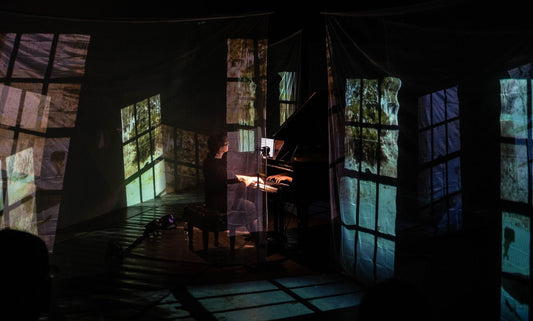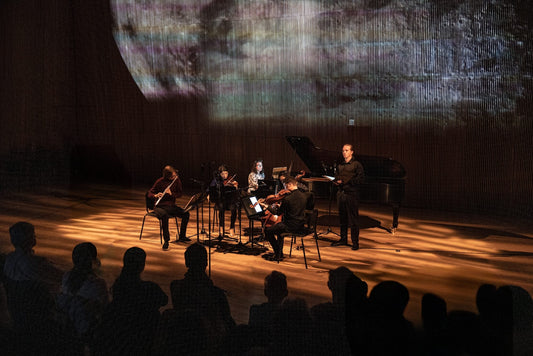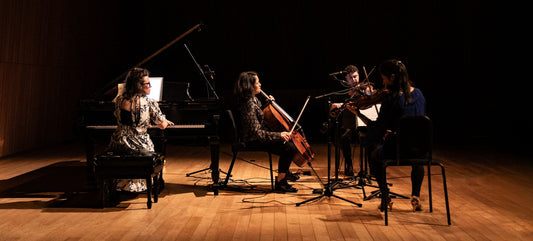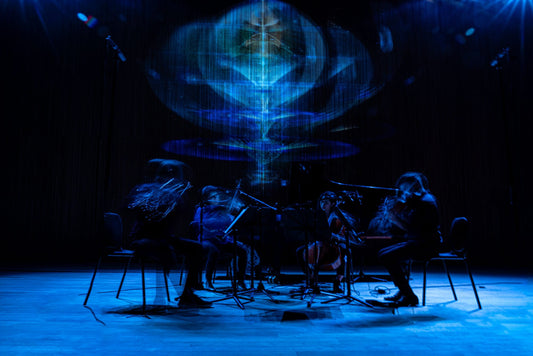Imagine a place where your only worry is music. We had a chance to talk with Hannah Collins, cellist and Assistant Director of Avaloch Farm Music Institute.
Avaloch Farm Music Institute gives chamber music and jazz ensembles at any stage of development a unique opportunity: time and space to work intensively on repertoire, prepare for recordings, concerts, or competitions, work with composers on commissions, and forge or reconnect to a group musical identity.
It was the combined vision of a dedicated philanthropist and a committed musician that provided the inspiration for Avaloch Farm. Dr. Alfred Tauber was seeking a way to bring something of lasting cultural value to the Boscawen, New Hampshire area. Cellist and music educator Deborah Sherr had long envisioned creating a professional musician’s retreat which would provide the resources and opportunities enjoyed by artists in other disciplines, but which were unavailable to performing musicians. Together they have designed an extraordinary concept, which has proven to be invaluable to performers and composers. Avaloch Farm joins the rich tradition of American institutions created to support the vision of our artists.
What makes Avaloch Farm unique?
Avaloch Farm aims to take the creative residency model most commonly used by writers, visual artists, and composers, and make it available to chamber musicians. I think of it as an artist colony for noisemakers. The key ingredients are an inspiring and peaceful setting, beautiful workspaces, and delicious food. The most unique part of the experience is the creative community. With approximately 30 residents at a time, 6 or 7 ensembles work on proposed projects side-by-side creating a unique synergy which shifts like a kaleidoscope with each new arrival and departure.
How is the relationship between musicians in an environment such as this one? Do you see differences in behavior with artists of other mediums, such as visual artists or dancers?
With all of the stresses of daily life removed (traveling, setting up for rehearsal, procuring food), we find that musicians have more time for both hard work and earned relaxation. Even ensemble members who have been working together for years get to know each other better in this setting. Because chamber musicians are collaborative by nature, we see a lot of cross-pollination between members of different ensembles who meet at Avaloch, whether its individual musicians learning specific skills from each other during down time, ensembles commissioning a composer from a different project, or musicians sharing concert bills in major cities during the concert season. Even groups that focus on music from entirely different styles or centuries find unique ways to connect or compare notes about performing, presenting, recording, grant writing, etc. The interest and possibility of creating new collaborations is particularly exciting. I can’t speak specifically to how visual artists and dancers compare because we are primarily  focused on music makers, but I can say that I think everyone can benefit from being in an environment where they are fed well, taken care of, and given a chance to let their ideas take shape.
focused on music makers, but I can say that I think everyone can benefit from being in an environment where they are fed well, taken care of, and given a chance to let their ideas take shape.
How do you make a platform like this sustainable?
There are many elements which help to keep Avaloch Farm Music Institute healthy including a strong artistic advisory board, foundational support, and our continuing engagement with the community via outreach performances and events. The clear vision of our founder Fred Tauber and executive director Deborah Sherr help keep the organization focused and moving forward.
What artist profile would benefit most from a place like this?
This is the perfect place to dig into a dream project or a big artistic challenge. The ideal profile would be a musician who is focused and driven to follow through on their own big ideas, while at the same time a life-long learner who is open to being inspired by other work.
What does the future hold for Avaloch Farm?
In just six years, things have already developed and grown very quickly. We look forward to continuing to grow, fine-tuning the residency program, and possibly developing some curated special projects in future seasons.






